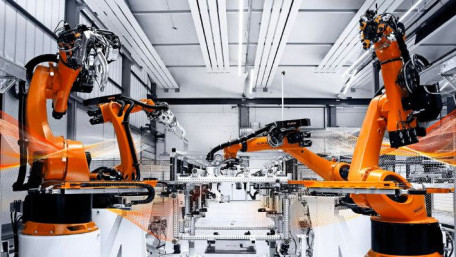
The world of manufacturing is filled with robots, but beginners are still always faced with key questions, starting with perhaps the most basic: how do you…
The world of manufacturing is filled with robots, but beginners are still always faced with key questions, starting with perhaps the most basic: how do you program industrial robots?
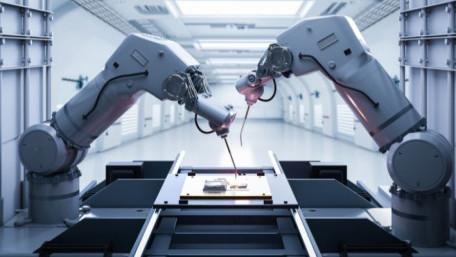
Robot cells make for an efficient automation process, reduce labor costs, and increase worker safety. Learn about the…
Robot cells make for an efficient automation process, reduce labor costs, and increase worker safety. Learn about the common features, components, and safety requirements of industrial robot work cells.
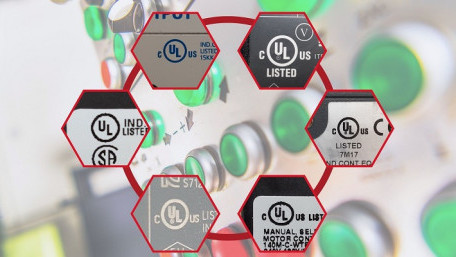
UL Listed devices are certified as safe within North America, specifically, the US. Learn about the importance of UL…
UL Listed devices are certified as safe within North America, specifically, the US. Learn about the importance of UL Certification and the key role it plays in industrial automation.
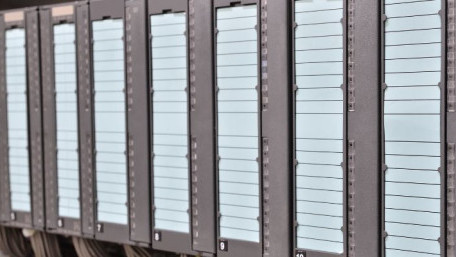
Centralized control systems are often seen as outdated compared to decentralized systems; however, both have their…
Centralized control systems are often seen as outdated compared to decentralized systems; however, both have their advantages and disadvantages when it comes to choosing which one to use in manufacturing.
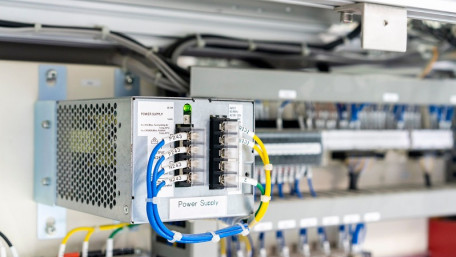
DC voltage systems exist to provide controllers and field devices with stable power, but it is not always clear when…
DC voltage systems exist to provide controllers and field devices with stable power, but it is not always clear when these systems should be bonded with the earth ground of the AC line voltage supply.

Singularity in robotics can be problematic for programmers and manufacturers alike. We will investigate the cause of…
Singularity in robotics can be problematic for programmers and manufacturers alike. We will investigate the cause of singularities and how prevention can be considered in the design of a robot cell.
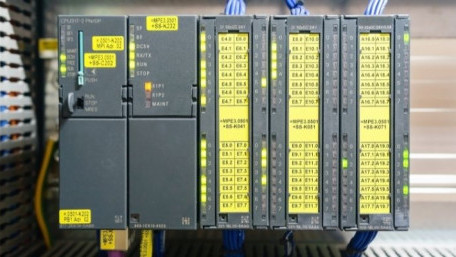
We will show you how to recognize, utilize, and efficiently operate your comparison instructions in…
We will show you how to recognize, utilize, and efficiently operate your comparison instructions in Rockwell Automation’s Studio 5000 and Automation Direct’s Productivity Suite to make your program flow smoothly.
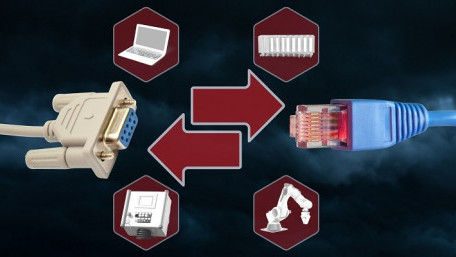
One common challenge when working with legacy control systems is establishing communication with old devices that use old…
One common challenge when working with legacy control systems is establishing communication with old devices that use old protocols like RS232 and RS485. Learn about the importance of converting from serial to Ethernet.
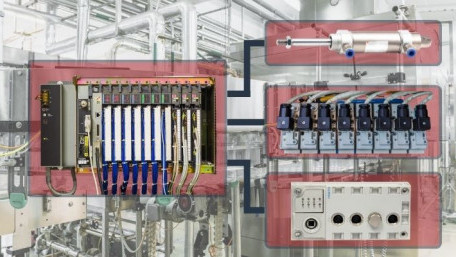
There are many distributed fieldbus capabilities for valve manifolds that can save on network overhead and wiring. In…
There are many distributed fieldbus capabilities for valve manifolds that can save on network overhead and wiring. In this article, we will look at PLC programming of fieldbus manifolds highlighting Festo's CPX layout.
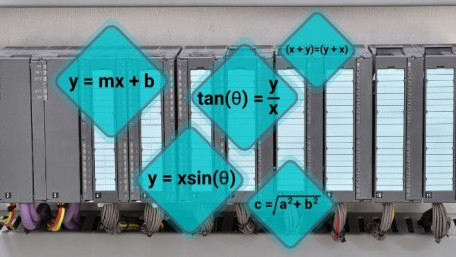
We will show you how to use the basic trigonometry functions to build ladder logic in a PLC, allowing for a clean,…
We will show you how to use the basic trigonometry functions to build ladder logic in a PLC, allowing for a clean, well-organized, and easy-to-use code that allows you and other users to troubleshoot your programs.
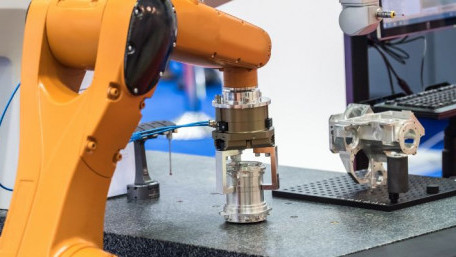
Industrial robots are a valuable investment because of their speed and accuracy. However, failing to establish the tool…
Industrial robots are a valuable investment because of their speed and accuracy. However, failing to establish the tool center point (TCP) can decrease the accuracy, effectiveness, and ROI for a robot workcell.

Communication protocols are a key component for an industry 4.0 compliant facility and are used to enable communication…
Communication protocols are a key component for an industry 4.0 compliant facility and are used to enable communication back and forth between cloud servers to transmit data or receive instructions.
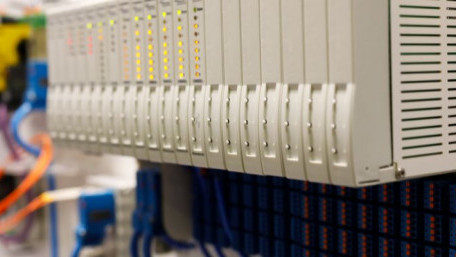
We will show you how to use common math functions from two popular PLC programs—Rockwell Automation's Studio 5000 and…
We will show you how to use common math functions from two popular PLC programs—Rockwell Automation's Studio 5000 and Automation Direct Productivity Suite.

Software obsolescence poses a threat in industrial automation equal to hardware obsolescence and should not be…
Software obsolescence poses a threat in industrial automation equal to hardware obsolescence and should not be overlooked. Many PLC OEMs offer tools to migrate upgraded software projects to the newest controller revisions.

The HART protocol enables instruments to send analog and digital signals over the same physical wire. This provides…
The HART protocol enables instruments to send analog and digital signals over the same physical wire. This provides multiple advantages for remote configuration, increased accuracy, and more.
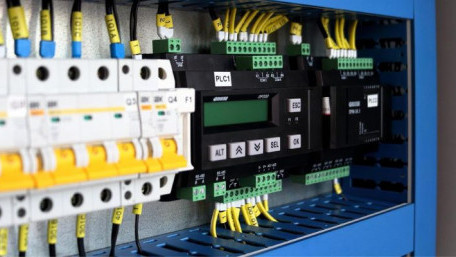
Configuring analog signals into usable digital quantities is accomplished by scaling function inside the PLC, which,…
Configuring analog signals into usable digital quantities is accomplished by scaling function inside the PLC, which, along with analog signal wiring, is important to understand.
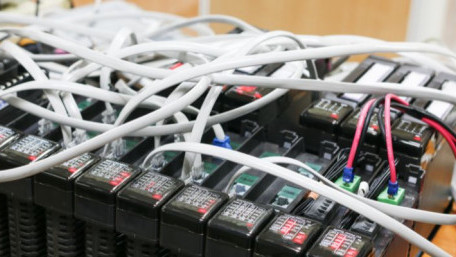
Counting up and down are commonly required functions in PLC lagger logic programs for tracking inventories, placement…
Counting up and down are commonly required functions in PLC lagger logic programs for tracking inventories, placement patterns, and gaining informational insights about machine performance statistics.
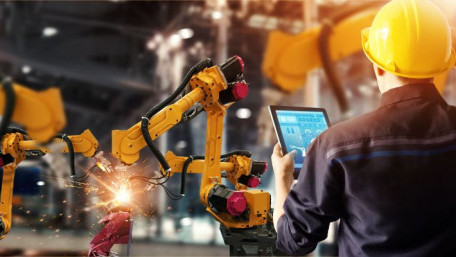
Designing an obsolescence mitigation plan to detect and solve mitigation risks before they occur is key to avoiding…
Designing an obsolescence mitigation plan to detect and solve mitigation risks before they occur is key to avoiding costly downtime and a potential catastrophe in control environments.
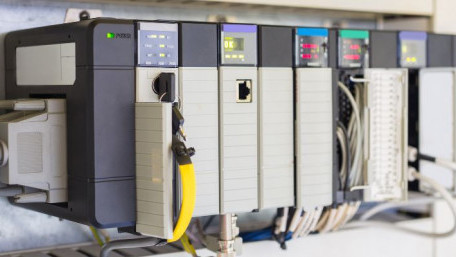
Many PLC commands are well-known to programmers, including contacts, coils, timers, and counters. But a less-common…
Many PLC commands are well-known to programmers, including contacts, coils, timers, and counters. But a less-common instruction is the one-shot, capable of harnessing the incredible processing speeds in a CPU.
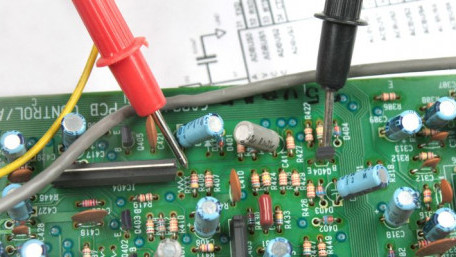
Control engineering is integrally woven together with electricity and electrical circuits. Even so, sometimes the most…
Control engineering is integrally woven together with electricity and electrical circuits. Even so, sometimes the most basic scenarios become misunderstood through lack of training or experience.
